Have you ever wondered if rats can safely eat seeds? If you’re here, I’m sure you have. It’s a great question to ask and the answer is more complicated than you might initially think. The main reason why the answer to this question is not as easy as a simple “yes” or “no” is that there are many different kinds of seeds, and they’re not all the same. Some are safe, some are not. Knowing which seeds are safe for your rat to eat and which ones should be avoided is of the utmost importance because some seeds can be very dangerous!
Today, we’re going to delve deeper into this topic to find out which seeds your rats can eat, and which ones they can not. Furthermore, I will discuss whether or not seeds are good for rats and much more, so let’s dig in!
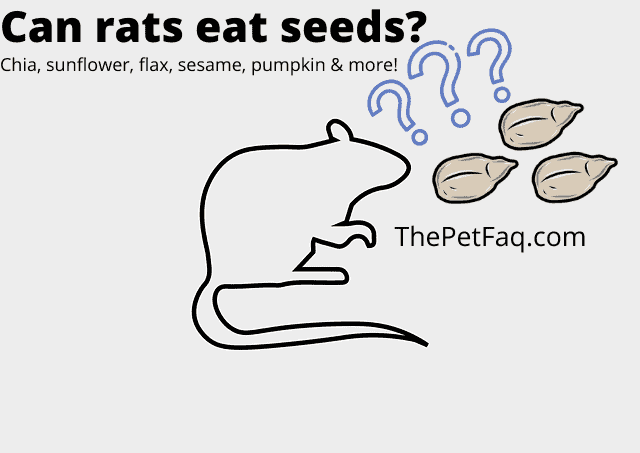
I recommend reading the whole article because it contains crucial information, but if you’re in a hurry, here’s the short of it: Rats can eat some kinds of seeds, but others should be avoided at all cost. Certain seeds, such as apple seeds are toxic to rats, so make sure that you never feed these to your furry friend. Other seeds such as chia seeds and sunflower seeds are okay for your rat to eat as long as you follow the precautions I’ll give you.
Can rats eat seeds and are seeds good for them?
Rats are omnivores. This means that they can eat a large variety of different kinds of foods, including plants, meat, fish, nuts, and yes, even certain seeds! However, while rats are known for being able to eat and digest many different kinds of food, that does not necessarily mean that everything they can eat is equally good for them.
Luckily, most seeds are very good for rats to eat. They contain all the starting nutrients that plants need to grow, which means that they’re very nutrient-dense. Most seeds are rich in fiber, protein, healthy fats, vitamins, minerals, and antioxidants, all of which are great for rats to eat.
However, because seeds are the starting phase of plants, and are necessary for plants to reproduce and therefore do not want to be eaten, some seeds contain poison and should be avoided. I’ll go into more depth about these later on.
One important thing that you should note is that even the seeds that are safe for rats to eat are very high in calories. Because of this, you should ensure that you do not overfeed your rat on seeds. It should be an occasional addition to their diet. You should not replace their regular diet of pellets and fruits and veggies with a diet containing too many seeds!
Seeds that are safe for rats to eat
Now that you know that most seeds are good for rats to consume, let’s take a closer look at the most popular seeds that are safe for your ratty friend to have.
Pumpkin seeds
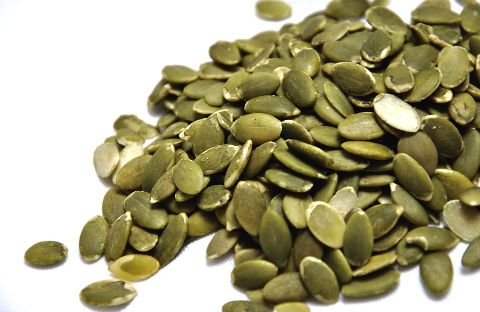
Pumpkin seeds are safe for rats to eat. They are not toxic and contain good amounts of omega-6 fatty acids, fiber, protein, manganese, magnesium, and phosphorus. However, while pumpkin seeds contain a lot of good nutrients, they’re also quite high in calories, and feeding too many of these seeds to your pet rat can lead to rapid weight gain. Because of that, you should not feed pumpkin seeds to your pet rat too often, only occasionally as a treat.
Flax seeds
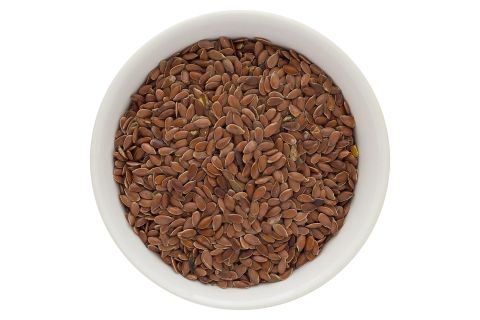
Rats can eat flax seeds in small quantities. They’re a great source of fiber, omega-3 fats, thiamine, manganese, magnesium, antioxidants, and protein. But, just like pumpkin seeds, flax seeds are quite high in calories. Therefore, your rat should not eat too many flax seeds.
Chia seeds
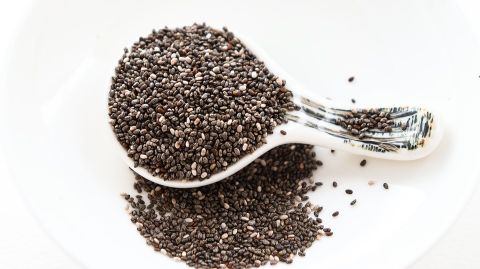
Rats can eat chia seeds, and nutritionally, they’re quite similar to flax seeds. Chia seeds are a great source of omega-3s, omega-6s, fiber, thiamine, magnesium, manganese, protein, fiber, and antioxidants, all of which are beneficial to your pet rat. However, just like the other seeds I’ve mentioned, you should be careful that you do not overfeed your rat on chia seeds. While these seeds are nutrients dense, they come packed with a lot of calories. Make sure that you feed chia seeds in moderation.
Also, a study has shown that the consumption of chia seeds can contribute to good cholesterol levels in rats.
Sesame seeds
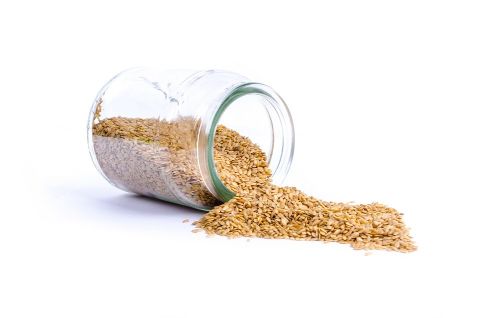
Rats can safely eat sesame seeds in small quantities. They’re a great source of copper, monounsaturated fat, omega-6, manganese, magnesium, protein, and fiber. Studies have shown that sesame seeds can contribute to your rat’s metabolism and that they can be of benefit to your rat’s brain.
However, just like with other seeds, moderation is key. While sesame seeds contain a bunch of healthy fats, these fats do cause the seeds to have a lot of calories. Therefore, you have to make sure that you do not overfeed your rat on sesame seeds.
Sunflower seeds
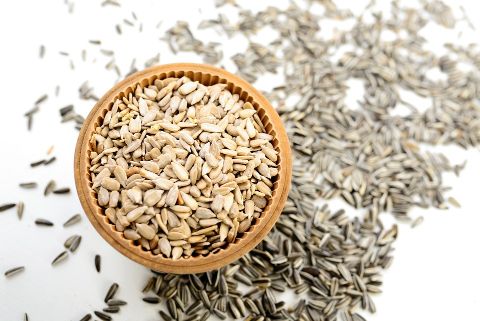
Yes, your rat can eat sunflower seeds but you do have to be careful because they can be a choking hazard. Sunflower seeds are rich in protein, healthy fats, vitamin E, manganese, magnesium, fiber, and antioxidants, making them a healthy treat for your furry friend. However, while sunflower seeds can be a nutritious treat, they’re high in calories, so make sure that you feed them very small portions.
Quinoa seeds
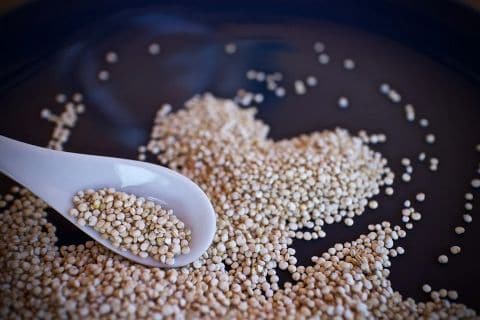
I didn’t know this until recently, but quinoa is a seed! Rats can eat quinoa (both cooked and uncooked), and it can be very beneficial for them to do so. Quinoa is very nutritious and contains lots of fiber, protein, manganese, folate, copper, potassium, zinc, iron, and antioxidants. It also contains smaller amounts of vitamins B1, B2, and B6. All of this makes quinoa a healthy treat for your rat, as long as it’s fed in moderation.
Seeds that rats can not eat
Now that you know which seeds are safe for your rat to eat, it’s time to take a look at which seeds should be avoided.
Apple seeds
Apple seeds contain amygdalin, which turns into cyanide when in contact with the digestive system. Cyanide is very dangerous to your rat, so you should make absolutely sure that you avoid giving apple seeds to your rat. Apples themselves are fine, but before you feed apples to your rat, you must ensure that you remove the seeds.
Peach, apricot, and plum seeds
The seeds (or “stones” as some people call it) of fruits like peaches, apricots, and plums are harmful to rats. These seeds are quite big, and there’s thus not a huge risk of your rat accidentally eating one. However, rats have incredibly strong teeth, so they’re easily capable of chewing through these seeds if you leave one within their reach. Make sure that when you feed one of these fruits to your rat that you first remove the stone as to not give them the opportunity to chew on it.
Cherry pits
Yet another fruit seed that should be avoided are cherry pits. Cherry pits also contain the compound amygdalin, which turns into cyanide in the stomach and should therefore be avoided.
Citrus seeds
Citrus seeds are not good for rats and should thus be avoided.
Do rats like seeds?
Most rats like seeds a lot, and it makes sense why. Just like humans, rats are naturally drawn to foods that are high in calories, fat, or sugar, because these foods give them the necessary energy to survive. Since seeds contain a lot of fat and calories, most rats are big fans of seeds.
However, all rats have their own likes and dislikes when it comes to food. While most rats like seeds, it’s very possible that one of your rats is not very interested in eating them. The easiest way to find out what your rat thinks of seeds is by offering them a small portion of one of the safe seeds. If they’ll like it, they will eat it.
If your rat doesn’t like seeds, fear not. There are plenty of other seeds that your rat can eat. For more information, I suggest reading my rat nutrition guide, where you will find a complete overview of all the foods that are safe for your rat to consume.
Conclusion
So, to sum it up, rats can eat a large variety of seeds, such as chia seeds, pumpkin seeds, sunflower seeds, and even quinoa. These seeds can be a healthy treat for them due to the many nutrients they contain but should be fed in moderation because they contain a high amount of calories. On the other hand, some seeds like the seeds of apples, pears, cherries, and plums, are toxic and should be avoided.
I hope this guide was informational, good luck feeding your rat!
- How Long Do American Eskimo Dogs Live? Important Factors and Care Tips - September 29, 2023
- Do American Bulldogs Need Grooming? Essential Tips and Care Guidelines - September 29, 2023
- Do Bengal Cats Enjoy Playing? Essential Tips for Keeping Them Active - September 29, 2023